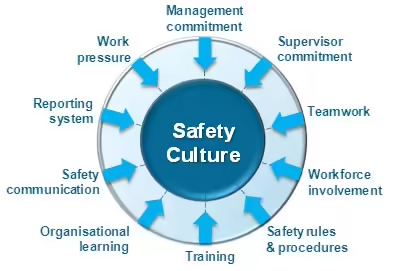Let's face it, the workplace is like a second home for most people. Spending the lion's share of our waking hours there means we should feel safe, just like we do at our actual homes. For employers, making sure the workplace is a secure spot isn’t just about ticking boxes and following regulations. It’s about genuinely caring for the people who punch in day in and day out, ensuring they leave just as healthy as they arrived. This isn’t just feel-good talk; it’s about having a work environment where safety is part of the DNA. When employees see that their well-being is top priority, it transforms the whole vibe of a place, making it somewhere people are proud and happy to work. The average person spends a significant portion of their waking hours at work, making it essential that this environment is as safe and secure as one's actual home. For employers, prioritizing workplace safety transcends mere regulatory compliance; it signifies a deep-rooted commitment to the well-being of their employees. Cultivating a culture where safety is ingrained in every aspect of operations can transform the workplace atmosphere, fostering a sense of pride and satisfaction among the workforce.
Two Details Not to Sleep On
Communication and Engagement
Effective communication stands as the cornerstone of a robust safety culture. Beyond the occasional safety briefing or the passive display of posters, it's about maintaining a dynamic dialogue between management and employees. Regularly scheduled safety meetings, timely updates on safety protocols, and open forums for feedback ensure that everyone is aligned with the safety objectives and feels empowered to contribute to a safer workplace. Such an approach not only keeps safety front and center but also builds a collective responsibility towards maintaining it.
Training and Education
The essence of impactful safety training lies in its ability to resonate with the workforce. Gone are the days of monotonous lectures; today's safety education is interactive, engaging, and directly relevant to the daily experiences of employees. Effective training programs equip staff with the necessary skills to navigate their tasks safely, respond adeptly in emergency situations, and internalize the importance of adhering to safety guidelines. By transforming safety from a mandated directive into a personal value, employees are more likely to integrate these practices into their daily routines.
One effective way for organizations to imbue workplace safety as a personal value among employees is by providing comprehensive training courses that are directly applicable to their everyday tasks. By embracing OSHA training courses, companies can equip their workforce with the necessary skills and knowledge, not just in adhering to safety protocols but ensuring they're ingrained in daily routines. Such programs transform safety from an obligatory task into an intrinsic practice, ultimately fostering a culture of vigilance and well-being.
The Win-Win of Workplace Safety
Investing in workplace safety yields dividends for both employees and employers. For the workforce, it means ending each day unharmed, both physically and mentally, leading to higher job satisfaction, reduced stress, and greater loyalty to the company. This not only enhances the quality of life for employees but also minimizes turnover, saving the company significant resources in recruitment and training.
From a business perspective, the advantages are multifaceted. Adhering to safety standards helps avoid legal complications and financial liabilities associated with workplace accidents. Moreover, a reputation for safety can be a powerful tool in attracting top talent and enhancing overall productivity. In an environment free from the fear of injury, employees can focus their energies on innovation and excellence.
How Personal Injury Lawyers Fit Into This Picture
Personal injury lawyers play a critical role in the ecosystem of workplace safety. They are often the ones who witness the consequences of safety oversights, dealing with the aftermath of preventable accidents. Their insights into the failings that lead to injuries can serve as invaluable lessons for businesses aiming to fortify their safety practices. Furthermore, establishing a proactive relationship with personal injury attorneys can provide businesses with expert guidance on how to better safeguard their workplaces against potential hazards.
Safety: More Than Just Good Business Sense
Embracing a culture of safety is a testament to a company's ethos and its commitment to its most valuable asset—its employees. It's about creating an environment where safety is seamlessly integrated into every activity and decision, where every individual feels genuinely valued and protected. Such a culture not only enhances the well-being of employees but also elevates the company's standing in the industry, making it a beacon of responsibility and care in the business world.



